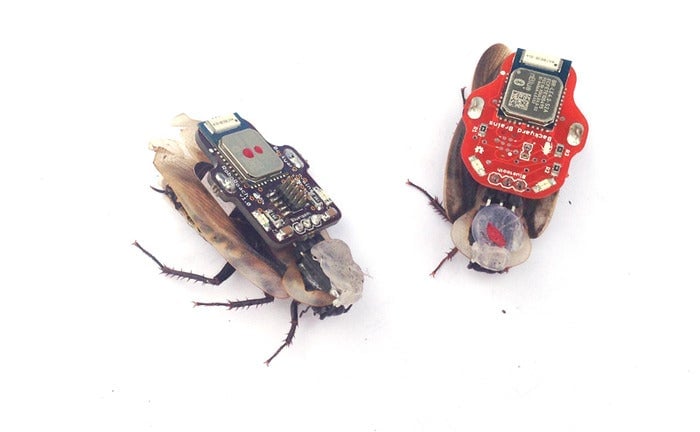World’s first commercial cyborg scuttles onto Kickstarter
The world’s first Bluetooth-controlled cyborg is here in the form of an app-enabled cockroach. And it’s using Kickstarter to raise money. It’s also being developed and manufactured in a hackerspace—a cooperative lab and machine shop space where techies can tinker and invent together.


The world’s first Bluetooth-controlled cyborg is here in the form of an app-enabled cockroach. And it’s using Kickstarter to raise money. It’s also being developed and manufactured in a hackerspace—a cooperative lab and machine shop space where techies can tinker and invent together.
Why RoboRoaches? A group of neuroscience junkies named Backyard Brains thinks the roaches can serve as experiment kits for high school science classes, PhD students and other amateur neuroscientists. The group’s flagship product, the SpikerBox, allows users to view the neurological activity of an invertebrate on a smartphone. RoboRoach improves on that product by letting users hack the bug’s brain waves, control them, and steer the bugs with a smartphone.
The product, which works by sending electrical stimuli to the antennae to steer the roach’s movement, has existed in beta for almost two years. The technology is borrowed from the deep brain stimulation used to treat Parkinson’s Disease, and cochlear implants that help the deaf hear.
The Kickstarter funding, says head cyborg-maker Bill Reith says, will allow the group to manufacture its own hardware (right now it uses existing controllers from toy robots). The group also wants to create neuroscience lesson plans to accompany the devices.
“We want to create neural interfaces that the general public can use,” engineer and co-founder Tim Marzullo says in the project’s Kickstarter video. “Typically, to understand how these hardware devices and biological interfaces work, you’d have to go to graduate school in a neuro-engineering lab.”

While the technology is meant to be user-friendly, it wouldn’t be easy to use the product as a toy. That’s because the “backpack” that delivers electrical stimuli to the roach’s antennae requires a fairly delicate surgery (under ice-water anesthesia) to connect.
The company credits its hackerspace in Ann Arbor, Michigan for enabling the technology’s development. “Hackerspaces are home to some of the brands of tomorrow,” says Reith. “MakerBot is one of the first companies to gain traction, but there will soon be many more.” Reith and his team hope that RoboRoach-based experiments will inspire students to engage with neuroscience. And perhaps they will inspire other hackerspace-based businesses, too.